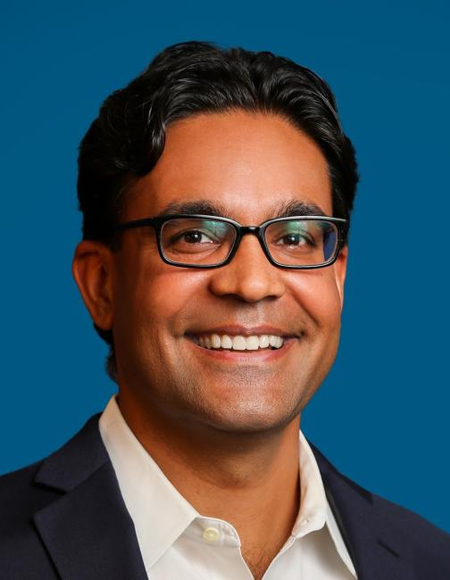

Washington, Sep 17 (IANS) As US President Donald Trump called Prime Minister Modi to extend greetings on his 75th birthday, a leading expert on India-US relations credited New Delhi for demonstrating “remarkable message discipline” in its handling of recent tensions with the United States.
In an exclusive interview with IANS in Washington, DC, Milan Vaishnav, the Director and Senior Fellow of the South Asia Program at the Carnegie Endowment for International Peace, believed that India has “held firm and the United States is coming back to the negotiating table.”
“I give credit to the Indian side for keeping their heads down and not taking Trump’s bait. They’ve demonstrated remarkable message discipline. I still believe India will have to give more than it will take as long as this President is in office. But this is in the service of a longer-term strategy in which maintaining cordial US-India relations is paramount,” he added.
In their first phone conversation in months, Trump called Prime Minister Modi on Tuesday to wish him on his 75th birthday.
Prime Minister Modi, in a post on X, termed Trump as his “friend” and thanked him for the wishes.
“Thank you, my friend, President Trump, for your phone call and warm greetings on my 75th birthday. Like you, I am also fully committed to taking the India-US Comprehensive and Global Partnership to new heights. We support your initiatives towards a peaceful resolution of the Ukraine conflict,” PM Modi wrote.
President Trump also posted on Truth Social, calling the phone call “wonderful” and thanked him for his support in attempting to end the conflict in Ukraine.
“Just had a wonderful phone call with my friend, Prime Minister Narendra Modi. I wished him a very Happy Birthday! He is doing a tremendous job. Narendra: Thank you for your support on ending the War between Russia and Ukraine! President DJT,” he said.
The phone call comes as US Assistant Trade Representative for South and Central Asia Brendan Lynch held talks with India’s chief trade negotiator Rajesh Agrawal in Delhi.
Both sides termed the discussions as “positive.”
Vaishnav, who is also an Adjunct Professor at Georgetown University in Washington, characterised the talks as a “groundwork” for the sixth round of negotiations between the two sides.
“Judging by the initial statements from both parties, I think these talks were productive in getting negotiations back on track,” he noted.
Vaishnav added that a change in rhetoric from the Trump administration in recent days “hopefully gave negotiators an opening.”
“There has been quite a toxic atmosphere thanks to the statements emanating from the White House and senior officials like Howard Lutnick and Peter Navarro. In recent days, however, the rhetoric from Donald Trump has been more conciliatory, and these talks hopefully gave negotiators an opening with which to work,” he pointed out.
Analyzing India’s strategy in the ongoing negotiations, Vaishnav doubted that New Delhi would make any “significant concessions” on sectors such as agriculture or dairy.
“These are politically sensitive subjects, and India has held the line on them in other trade negotiations as well. However, I suspect that the Modi government is looking for ways to make minor concessions in ways that would show good faith to the American side without creating blowback at home,” he argued.
Vaishnav suggested India’s purchase of US energy as a possible sweetener.
“The India side is quite open to discussions on energy, including crude oil, LNG, and civilian nuclear power. All three are on the table, and sources indicate India is willing to ramp up purchases of US energy exports and consider changes to its civil nuclear liability laws. In fact, India has been gradually increasing its purchases of US oil in recent months without much fanfare or acknowledgement from the American side,” he emphasised.
Commenting on the additional US tariffs of 25 per cent on India for buying Russian oil, Vaishnav maintained that India does not have an “ideological commitment to Russian crude imports.”
“If the United States is willing to help broker new suppliers for India, I expect India will pocket that deal and ramp down Russian oil imports. But doing so loudly and publicly will be difficult given that India does not want to appear to be cowing to a bullying Trump administration. These matters should have been handled quietly and privately to begin with,” he said.
Some policymakers and experts argue that a sudden change in the US stance toward India is a direct result of PM Modi’s visit to China for the Shanghai Cooperation Organisation (SCO) summit last month, which included the now-famous photo-op with Chinese President Xi Jinping and Russian President Vladimir Putin.
Last week, in an exclusive interview with IANS, Congresswoman Deborah Ross termed Prime Minister Narendra Modi’s meetings in China as a “smart move” to send a message to the United States that “he has options.”
“I think it was actually a smart move for him to do that, because he showed that he has options,” she noted.
Vaishnav agreed with her assessment.
“There is a push-and-pull in the administration about how best to manage China. There are some voices which value India’s partnership in pushing back against China and truly believe India is at the heart of America’s Indo-Pacific strategy. I think the Trump administration might have realised that it’s pressed its advantage too far. The signalling at the SCO in which Modi, Putin, and Xi shared the stage clearly resonated in Washington.”
However, Vaishnav cautioned that despite the current bilateral thaw, the future could still be uncertain.
“The difficulty is that no one knows what tomorrow will bring, not even top administration officials. They have to perform a kind of daily gymnastics routine to explain and justify what comes out of the White House. Nobody can be certain about anything,” he concluded.
–IANS
scor/rs
